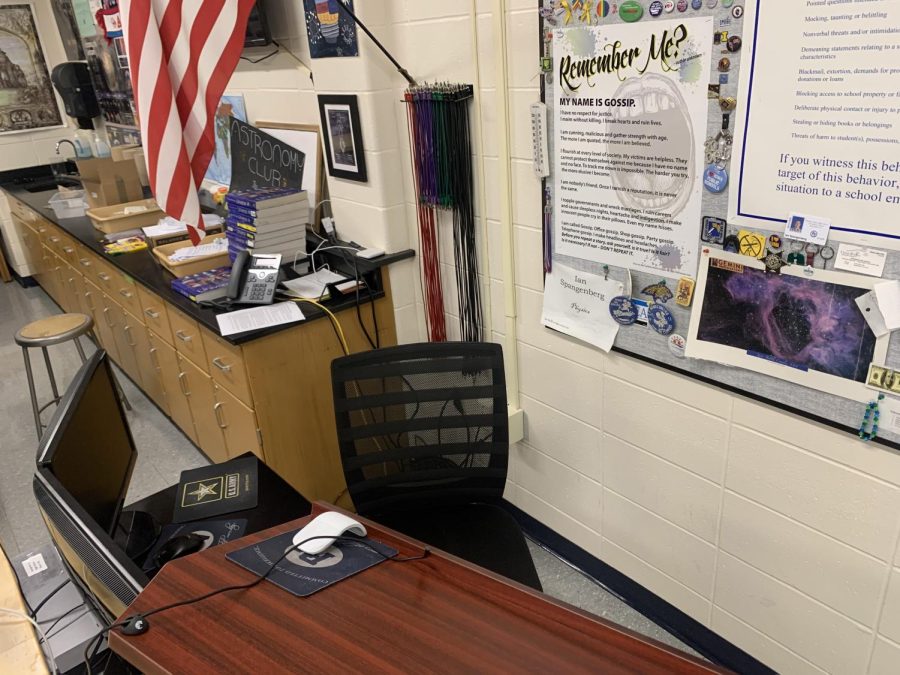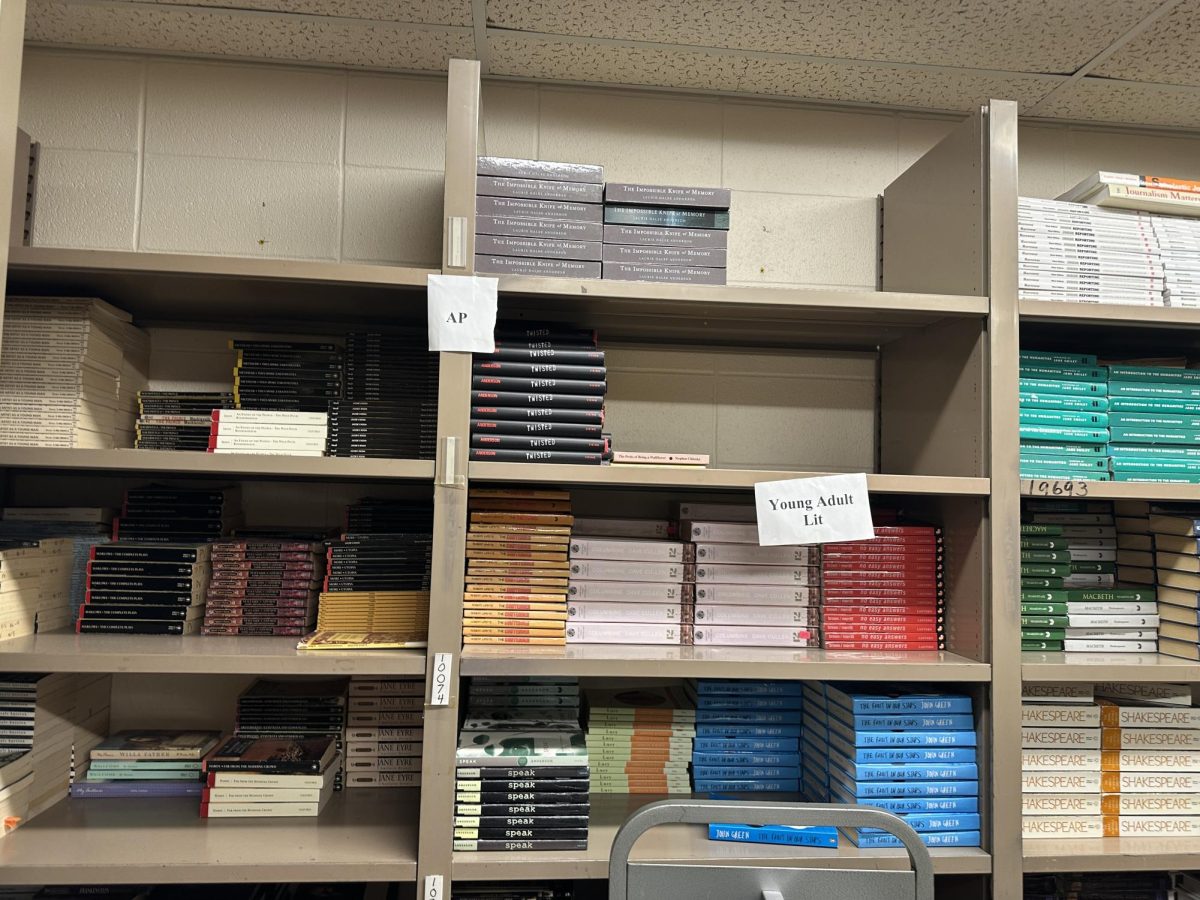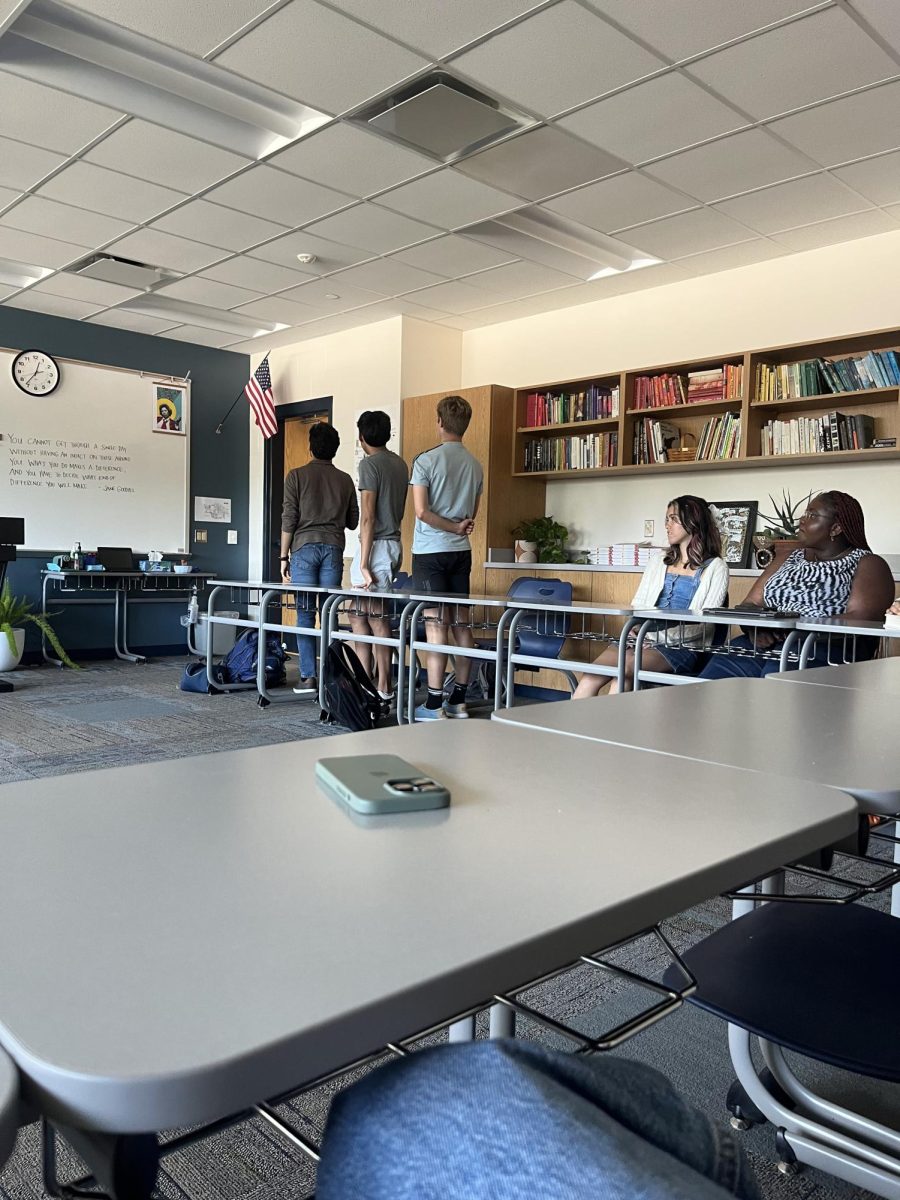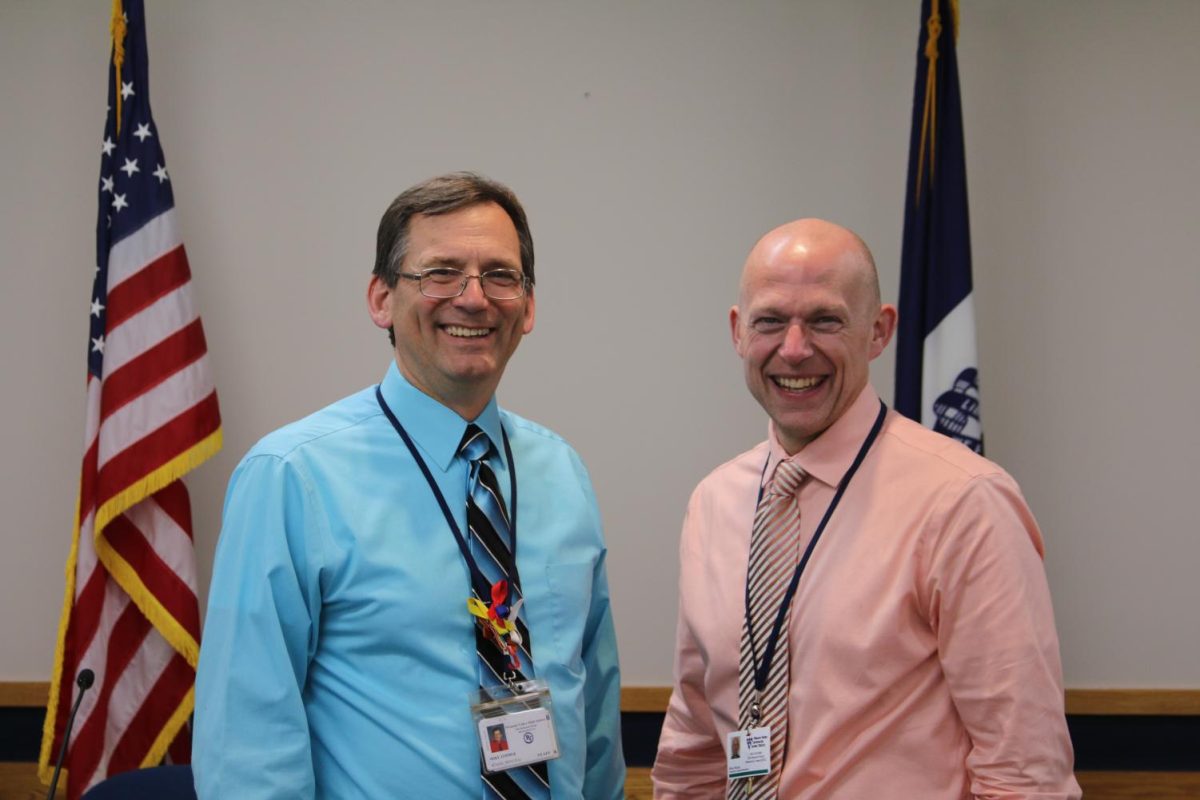Holding arguably the most important job in society, teachers make a lasting impression on the lives of the hundreds of students they encounter in classrooms.
However, the current professional environment is driving many away from the career.
Educators are severely underpaid, face a mentally taxing workload and are under pressure to prepare their students for high-stakes tests that determine school funding and teacher evaluations. The consequences of this are being shown in real-time, with teacher shortages reaching an all-time high.
Upper-primary educators often work with over a hundred students every day, making individualization of education extremely difficult to the detriment of the students. Not only is this mentally taxing for teachers, it is also demotivating.
PV English teacher Emily Jorgensen is resigning from teaching at PVHS due to the high pressure involved with education. “It’s hard for me personally for a lot of personal reasons like the time that I put into it and the time away that it takes away from family. But also on a macro scale, I think that a lot is being laid at the teacher’s feet in regards to things like responsibility or the people saying that we are knowingly contributing to some of the problems with children today,” Jorgensen shared.
The school administration undoubtedly takes into account the perspectives of students, parents and teachers. But in the current education system, a student with an F holds more power than a teacher. The administration pushes teachers to be “better” so that students can accomplish more but, in reality, some students just don’t care about their results.
This treatment leaves the teachers feeling unfulfilled by their impact on students and unrepresented by higher leadership. And no one is standing up for them.
“Administration is a very difficult task. It’s really hard when you are hearing from parents that something is absolutely unacceptable that’s happening inside the classroom and then hearing that that’s not what’s actually the case and trying to figure out for all of these circumstances, like, are students lying? Are parents overblowing a certain circumstance? You don’t want to ignore a situation that could become a really serious instance,” Jorgensen explained. “It’s important to hear all of those sides, but the ability to still act consistently is what’s best for the school and that’s been really rough in the last few years regarding teachers.”
In addition, teachers have little to no freedom in the classroom or outside of it.
In the classroom, they are bound by the school curriculum and government laws. In their multiple years of schooling, teachers master teaching strategies that will help their students succeed. When faced with strict curriculum and government regulations, these years of training are not utilized.
More and more laws have been making their way restricting the content and the amount of politics they can voice, especially in red states like Iowa and Florida. Not only does this make a teacher feel like a middleman rather than an educator, it also hurts the students in the end.
Jorgensen notices these political issues and their impact on her decision to leave. “There are very personal decisions that go into deciding whether or not to stay in teaching as a profession and then there are the wider state and national versions as well. Whereas I’ve always tried to think of myself as part of that solution and the difference of how we’re being portrayed in things like the media or through politicians who maybe haven’t been in a classroom since they were children or teenagers. This has weighed on my conscience heavily,” Jorgensen continued.
Outside of the classroom, teachers usually drown in a sea of worksheets and essays they have to grade on a daily basis. Even when a teacher is sick, finding a substitute and leaving a lesson plan is backbreaking work.
The teachers undoubtedly love the students and enjoy teaching them. However, teachers’ efforts are often minimized at the hands of the current system, which lacks the most important value for a teacher: respect.
“The amount of work that goes into teaching for the compensation that we receive is really difficult. When I was a kid, there was almost this weird hero worship of teachers, where one teacher can save a kid’s life and one teacher can inspire kids to change the world. And because of that, they’re not always seen as just like a profession. By doing this job, I must be the world changer or inspire the world changers,” Jorgensen recalled. “Now, there’s a large shift in respect for the teaching profession. There’s no trust. There’s not much gratitude. There’s not enough compensation.”
Jorgensen is not the only one affected by their underpaid profession. Educators all over the country are showing discontent towards the government for their lack of pay, respect and attention. The amount of work that teachers work outside of school to grade students’ piling homework and make strict syllabi based on state standards deserves to be compensated. In fact, teachers are paid 23.5% less than other comparable educated workers on average.
“There is going to be a diminished return on that investment where fewer great teachers are going to join the profession or stay in the profession when there is a better option out there for them. One that compensates them well,” Jorgensen concluded.
If the education system keeps treating its educators poorly, it will be hard to retain the profession and find more teachers. Without enough teachers, it will be hard to educate the growing population of the US.
Teachers are burning out and this retention crisis is only exacerbating.
Fixing these rooted problems involves trusting the judgment of experienced teachers. They went to school for multiple years to master the art of teaching impactfully, so allowing them to have more control over their domain would both benefit the students and release teachers’ stress.
Teachers should be given more leeway to teach in a style that benefits the students rather than pleasing school administrators with unreliable and unhelpful standardized test scores. This would liberate teachers and students from monotonous assignments that don’t boost critical thinking.
Even with the mess that is the current education system, there are still educators willing to brave the path to make an impact on future generations.
Senior Amory Brown plans to become a teacher, despite the shortcomings. “Someone once told me that people join a profession to either fix it or because they love it. The reason I want to be a teacher is both. I love working with kids and knowing I have the opportunity to make a difference, but I’m also motivated to try and make teaching and learning a better environment than what it’s become,” Brown shared.
With more people like Brown entering the profession, there is hope for the future of American education.
It’s time for society to value and support the tireless efforts of our teachers, or risk failing the future generations they strive to educate.
















Jalen • Mar 10, 2023 at 2:48 pm
This article informs me about how under-appreciated teachers are in the education system. It emphasizes and makes a point that teachers work too hard to be treated like this and they deserve more credit for the things they do for the students and the school.